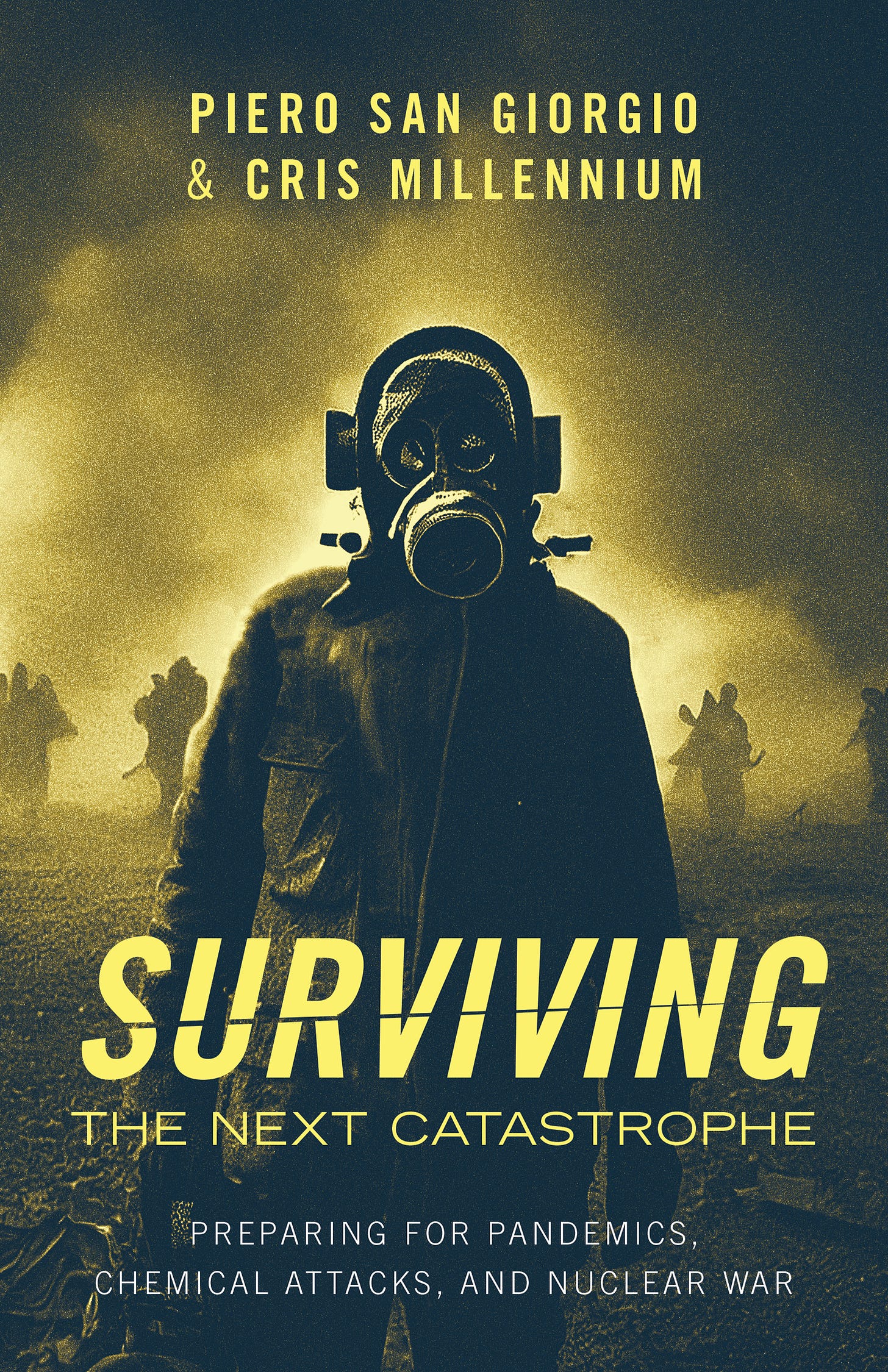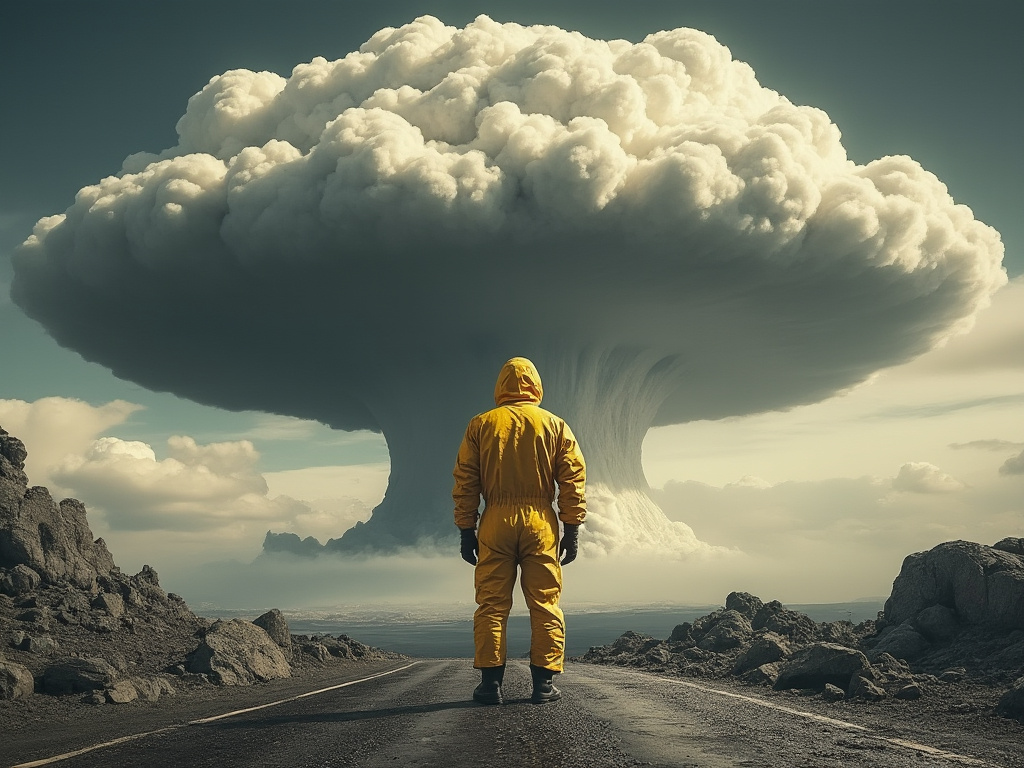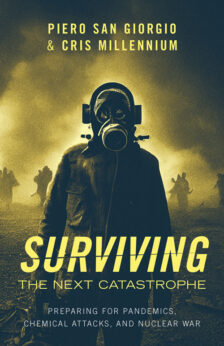This is Dmitry Orlov’s preface to Piero San Giorgio and Chris Millennium’s Surviving the Next Catastrophe: Preparing for Pandemics, Chemical Attacks, and Nuclear War (Arktos, 2024).
We live in a dangerous world, a world rendered even more dangerous by the incessant technological developments which, for the most part, bring their own share of unexpected consequences before which technology itself is often left powerless.
The danger is all the greater when one is unable to identify it: our senses are ill-suited to detecting chemical contaminants and completely helpless when it comes to perceiving radioactivity or radiological contamination. As for the threat posed by microscopic pathogens, the ability of our immune system to resist them has, paradoxically, been compromised by improved hygiene and the use of antibacterial soap and antibiotics.
These dangers are exacerbated by other risks faced by our world, both present and future ones. The permanent safety of many of our industrial technologies — those that manage radioactivity, virulent organisms and toxic substances — is based on our assumption of perpetual social stability. In the case of long-lived radionuclides such as uranium or plutonium, the period of social stability necessary to ensure their safe storage and their isolation from the environment is expected to last for thousands of years. History, however, teaches us that human societies never last that long.
Whenever a civilisation crumbles, what naturally follows is a dark age during which the population collapses, knowledge and literacy become a rarity, urban centres are abandoned and the few survivors must discover means of subsistence at much more primitive levels, all by themselves and without resorting to advanced technologies.
When will this happen?
Well, between you and me, we already live in an age when nation-states vanish ever more rapidly, millions of refugees roam the planet, and the financial systems that enable the very existence of globalised industrialised civilisation are in such a pitiful state that central banks are forced to use such bizarre devices as negative interest rates coupled with the unlimited issuance of fiat money.
But nothing lasts forever, and one should thus not ignore the possibility that we — or our children — may experience periods of great uncertainty, confusion and chaos. Whatever happens, we all want to live happily and in good health and be filled with a sense of accomplishment, and we strive to provide the same for our children to enjoy. None of this, however, is possible without peace of mind, and knowing that the prospects for this well-being are ever uncertain, we are burdened with anxiety. Some of this anxiety is due to helplessness resulting from our conditioned obedience and an ignorance which we ourselves have actually desired: we have been taught to trust experts when it comes to our well-being and not to question them too much. But where will all these experts be once cities fall under the yoke of a people in revolt and become too dangerous to approach? To control our anxiety, we must learn to identify the risks and be prepared to face them.
This book describes the risks which we are least able to apprehend using our common sense, powers of perception and instincts. They belong to the domain of experts and, without sophisticated know-how and specialised equipment, one finds oneself completely defenceless when facing them. Even if we truly wanted to be able to deal with them, we could not, most of the time, even detect their presence. Nevertheless, by reading the information contained in this book and considering the option of a modest investment in protective equipment and detection (an investment that can sometimes be beyond the means of a single family, but remains conceivable at the level of a small community), one can overcome one’s anxiety and regain the ability to lead a fulfilling life.
The threats are many, but the greatest of them all is simply embodied by panic. When people fall ill and none can determine the cause, society may well experience sudden collapse. And yet, panic could still be avoided should some well-informed people be able to explain to others what is happening and what they should and should not do.
You, too, can become one of these people. So, do not panic, and read this book!
Dmitry Orlov, Beaufort, South Carolina, USA
Order Surviving the Next Catastrophe here.









